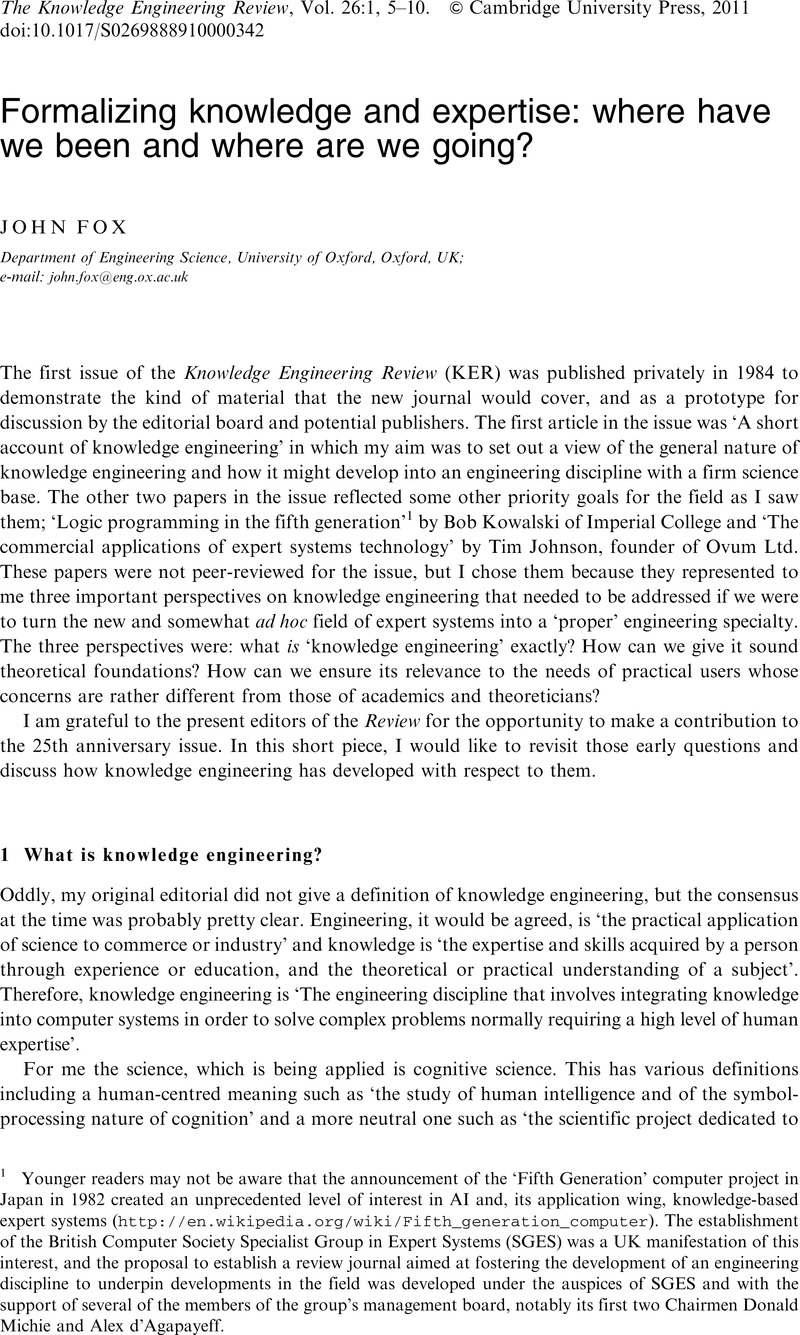Crossref Citations
This article has been cited by the following publications. This list is generated based on data provided by Crossref.
McBurney, Peter
Parsons, Simon
and
Viroli, Mirko
2011.
A quarter-century of The Knowledge Engineering Review: Introduction to the Special Issue.
The Knowledge Engineering Review,
Vol. 26,
Issue. 1,
p.
1.
Prat, Nicolas
Akoka, Jacky
and
Comyn-Wattiau, Isabelle
2012.
An MDA approach to knowledge engineering.
Expert Systems with Applications,
Vol. 39,
Issue. 12,
p.
10420.
Wielinga, Bob J.
2013.
Reflections on 25+ years of knowledge acquisition.
International Journal of Human-Computer Studies,
Vol. 71,
Issue. 2,
p.
211.
Mannai, Monia
Karâa, Wahiba Ben Abdessalem
and
Ghezala, Henda Hajjami Ben
2018.
Information and Communication Technology.
Vol. 625,
Issue. ,
p.
289.



